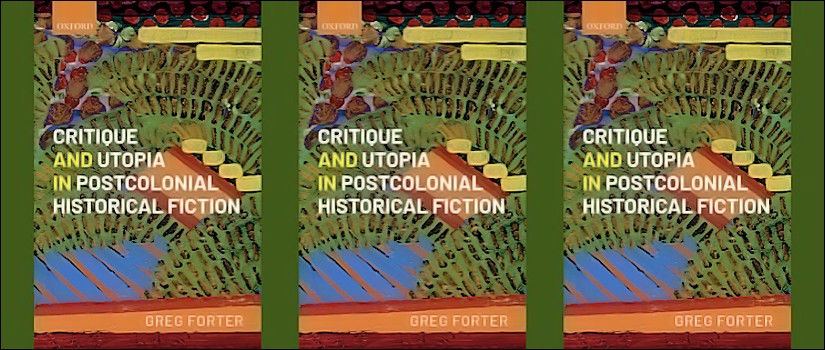Critique and Utopia in Postcolonial Historical Fiction finds resources for hope in history’s dark chapters
Novels that focus on the colonial past can hardly avoid confronting the violence that human beings inflict on one another. But in Critique and Utopia in Postcolonial Historical Fiction: Atlantic and Other Worlds (Oxford University Press), Professor Greg Forter shows that a number of such books also retrieve from this troubling history surprising instances of interracial solidarity, gender equality, and utopian possibility. Forter emphasizes these books’ ability to map colonialism as a transoceanic system—a system that spans not only nations but different oceanic regions. The novels he discusses uncover pockets of resistant energy that disturb colonialism’s spatial ambitions and its effort to impose on the colonized a uniform experience of time as “homogeneous and empty.” In doing these things, the books distill from our colonial pasts the evanescent, utopian intimations of a properly postcolonial future.
Critique and Utopia in Postcolonial Historical Fiction juxtaposes novels from the Atlantic world with books from the Indian subcontinent. Forter reads Patrick Chamoiseau’s Texaco alongside Kamila Shamsie’s Burnt Shadows; J. G. Farrell’s The Siege of Krishnapur alongside Marlon James’s Book of Night Women; Amitav Ghosh’s Sea of Poppies alongside Barry Unsworth’s Sacred Hunger; Hari Kunzru’s The Impressionist alongside Marlene van Niekerk’s Agaat; and Toni Morrison’s Beloved alongside Arundhati Roy’s The God of Small Things. These juxtapositions not only help to transform our sense of the colonial past and the futures that might issue from it, but also contribute to a range of important debates in postcolonial theory.
Praise for Critique and Utopia in Postcolonial Historical Fiction:
“Imaginative and erudite, Critique and Utopia in Postcolonial Historical Fiction offers a highly original and definitive account of a key literary genre of our day. Postcolonial scholars will value the way the work spans the Atlantic and Indian Oceans, thereby yoking together the experience of the plantation and the colony in a series of rich chapters. Theorists of the novel will value the way in which this work takes off, not only from Lukács, but even more intimately from Benjamin, in its revelation of the seeds of utopian possibility embedded in fictional re-imaginings of the past. All students of contemporary literature will value this book’s cogent readings of major, but relatively unknown novels like Barry Unsworth’s Sacred Hunger and Marlene van Niekerk’s Agaat, which are brought into productive dialogue with more frequently celebrated works.”
–Rita Barnard, author of Apartheid and Beyond: South African Writers and the Politics of Place
“Critique and Utopia in Postcolonial Historical Fiction deftly traces material and imaginative links between Africa, the Americas and South Asia, advancing an ambitious reinterpretation of how historical fiction maps the criminal networks of global capitalism. This book is a timely reminder that the search for utopia is intrinsic to the postcolonial project. With Forter’s critical cartography, never again will we be able to treat the Atlantic and Indian Oceans as unconnected worlds.”
–Hamish Dalley, author of The Postcolonial Historical Novel: Realism, Allegory, and the Representation of Contested Pasts
